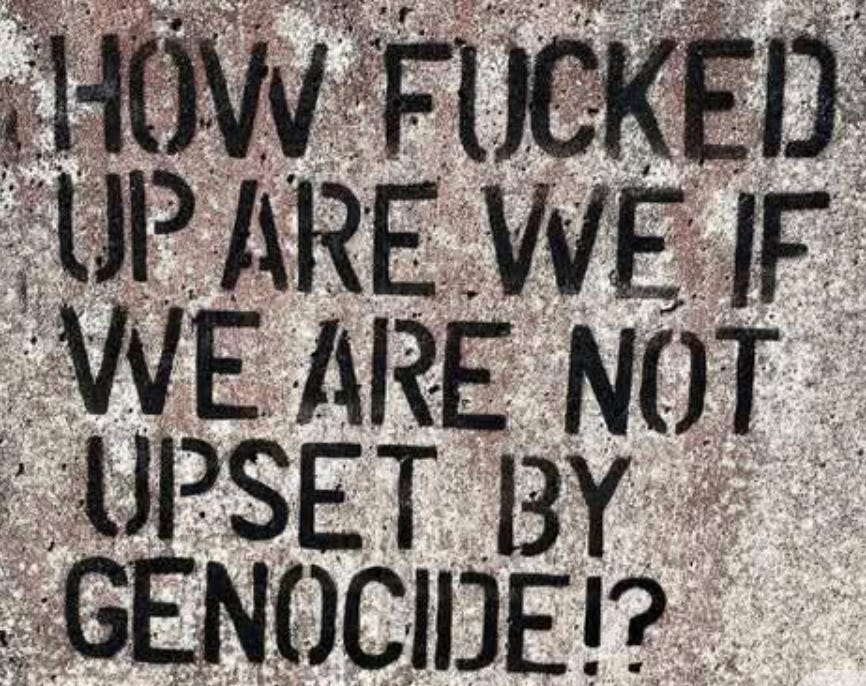Required reading for an unstable world
a starter kit of novels that still matter - maybe now more than ever.
Before starting, here is a list of a few ongoing conflicts around the world with links to learn more. You can also visit the Global Conflict Tracker for a more comprehensive list, however I don’t love the centering of the US in the analyses. Nonetheless, a good place to find out what’s going on in the world. I would just recommend digging deeper outside of that site.
1. Sudan
2. Gaza
3. Yemen
4. Afghanistan
And here you can find another piece related to this one. Thank you!
Civil wars. Genocides. Starvation, slavery, tyranny, dictatorship. Millions displaced and in need of urgent humanitarian aid, politically motivated assassinations adding to growing instability. The point in history we live in is bursting at the seams with conflict, feeling ready to explode at any moment. Everyone can feel it in every corner of the world, and anyone old enough to comprehend what’s happening can feel its weight.
What’s happening is not entirely unfamiliar. It has all happened in times before our own, and as a result art has reflected reality and these events have been memorialized, dissected, and recreated. To understand and think outside the limits of what we know, we can turn to literature.
Given all that we’re seeing around us, here are some books I recommend digging into:
1. Slaughterhouse Five - Kurt Vonnegut
Vonnegut’s expression of war is absurd and gutting and all too relevant now, when headlines about mass violence and bombings show up in our feeds every day. The book uncovers the way war deforms identity and reality itself. Reading about Billy Pilgrim stumbling through time feels pretty much like the news cycle now: fragmented, chaotic, and impossible to process. I cannot recommend this book enough, and not to mention, Kurt Vonnegut is one of my favorite writers.
2. The Trial - Franz Kafka
No bombs or coups in this one, but the slow murder at the hands of faceless authority. Josef K. is accused of a crime he can’t understand and spends the novel trapped in endless procedures that lead nowhere. It’s the helplessness that reflects our world, the desperation and confusion that so many victims of war and violence feel. Unhoused people, undocumented immigrants, and so many more who are also victims of the spiral of useless bureaucracy. When institutions are more invested in preserving themselves and the 1% that runs them than protecting real people, then comes dehumanization. Kafka symbolically captures a similar nightmare.
3. 1984 - George Orwell
This one is obvious. Reading it now, knowing what we have learned in the last few years about our world, feels less like fiction and more reality. Surveillance, disinformation, rewriting history and actively altering narratives before our eyes. Orwell wouldn’t be surprised if he saw the data looting, deepfakes, and abusive governments plaguing our world today. The same way this life in the book becomes ‘normal,’ with people learning to accept lies as truth because resisting seems impossible, we all do the same today - numbing ourselves with whatever distractions or addictions make it easier to cope. 1984 almost feels like a handbook for recognizing what we’re fighting against now. Find a relevant piece on him here, discussing his book “Why I Write”.
4. This Perfect Day - Ira Levin
This book isn’t as well-known as 1984 or Slaughterhouse Five, but it deserves to be. Similar to 1984, every person’s life in this world is tightly controlled: what they eat, who they marry. Even what they believe is dictated by a central system that keeps society ‘perfect’ through constant monitoring and medication. In an era of mass surveillance, biometric tracking (thanks, Oura Ring), and political systems that punish disobedience, This Perfect Day (again, like 1984) feels increasingly more and more real.
5. Animal Farm - George Orwell
A revolution based on the pursuit of equality turns into another dictatorship (you’re probably noticing a pattern by now). We watch fictional pigs rewrite the rules to keep themselves in power, which so obviously reflects what we see leaders today doing - whether through propaganda, fear, or violence. With political assassinations and obvious power grabs all over the world, Animal Farm is a reminder of how fragile revolutions can truly be, especially when ambition becomes corruption (something we’ve all seen all too many times now).
At the end of the day, reading is only the first step forward. These books give us language and perspective, but it’s on us to decide what to do with that awareness. We can’t afford to stay numb and brush off what’s happening just because it feels far away or too big to solve. We have to get involved where we are - support our neighbors, show up in our communities, and stand up for people who are different from us, not just the ones who look like us or think like us. If we break out of the boxes we’ve been put in - political, cultural - we might find new ways forward together. Literature will help show us the patterns, and maybe even give us some ideas on how to break them.
If you’re interested in weekly recommendations, reflections on these pieces, and all things related, subscribe for more :-)


